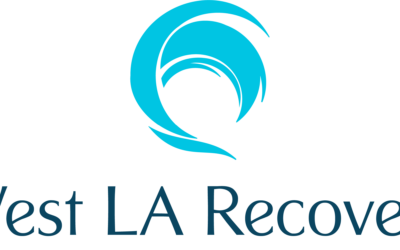Introduction
Completing a substance abuse treatment program is a significant accomplishment. It signifies dedication, resilience, and a commitment to a healthier future. However, the journey to maintaining sobriety doesn’t end after discharge. Reintegration into daily life can be challenging, and relapse is a real possibility. This is where aftercare planning comes in.
An aftercare plan is a personalized roadmap that outlines the steps you’ll take to maintain sobriety outside of a structured treatment environment. It equips you with the tools and resources necessary to navigate triggers, manage stress, and build a fulfilling life in recovery.
In this comprehensive guide, West LA Recovery explores the importance of aftercare planning and provides actionable strategies to help you create a robust and effective plan for maintaining sobriety.
The Importance of Aftercare Planning for Maintaining Sobriety
Substance abuse rewires the brain, creating strong cravings and associations with substance use. Leaving the supportive environment of treatment can be disorienting. Triggers – people, places, or situations – can suddenly resurface, increasing the risk of relapse.
Aftercare planning helps you anticipate these challenges and develop coping mechanisms to navigate them effectively. Here’s why it’s crucial for maintaining sobriety:
- Reduces Relapse Risk: A well-defined aftercare plan provides a clear path to follow, decreasing uncertainty and boosting confidence.
- Provides Ongoing Support: Aftercare connects you with support systems like therapy, support groups, and sober living environments, ensuring you’re not alone in your recovery journey.
- Empowers You: Participating in aftercare planning empowers you to take ownership of your recovery and make informed decisions about your well-being.
- Identifies Triggers and Develops Coping Mechanisms: Aftercare helps you identify triggers that can lead to cravings and relapse. You’ll then learn strategies like stress management and healthy coping mechanisms to address them effectively.
- Promotes Long-Term Recovery: Aftercare is an investment in your long-term health and happiness. By actively participating in your recovery plan, you increase your chances of maintaining sobriety for years to come.
Creating an Aftercare Plan for Maintaining Sobriety
Here are the key steps involved in developing a personalized aftercare plan for maintaining sobriety:
1. Collaborate with Your Treatment Team:
When it comes to aftercare planning, collaboration with your treatment team is essential. Engaging in thorough discussions with your therapists, counselors, and case managers allows you to tap into their wealth of expertise and experience. By doing so, you ensure that your aftercare plan is both comprehensive and tailored to your unique situation. Furthermore, this collaboration enables your treatment team to offer personalized recommendations that align with your specific needs and long-term recovery goals. In addition, by actively involving your team in the planning process, you can gain valuable insights and guidance that might not have been considered otherwise. Ultimately, this collaborative approach maximizes your chances of success in maintaining sobriety and achieving sustained recovery.
2. Identify Triggers and Develop Coping Mechanisms:
Identifying triggers is a crucial step in your recovery journey, and working closely with your treatment team makes this process even more effective. Together, you can pinpoint the specific people, places, situations, and emotions that may provoke cravings or lead to potential relapse. By recognizing these triggers early on, you empower yourself to take proactive measures in your recovery.
Once you’ve identified your triggers, it’s equally important to develop a well-rounded toolbox of coping mechanisms to manage them. These coping strategies might include various relaxation techniques such as meditation or deep breathing exercises, which can help you stay calm and centered during challenging moments. Additionally, incorporating physical activities into your routine can serve as a healthy outlet for stress and anxiety, further reducing the likelihood of relapse. Moreover, spending time with supportive individuals who understand and encourage your recovery journey can provide emotional strength and reassurance.
Practicing healthy communication is another valuable tool in your arsenal, as it allows you to express your needs, set boundaries, and navigate difficult situations without compromising your sobriety. By taking these steps, you not only equip yourself to handle triggers effectively but also lay a strong foundation for long-term recovery.
3. Choose Your Support System:
Building a strong support system is vital for maintaining sobriety.
- Therapy: Ongoing individual or group therapy can provide a safe space to discuss challenges, develop coping skills, and address any underlying mental health issues that may contribute to addiction. West LA Recovery offers a variety of outpatient therapy programs to support your continued recovery journey.
- Support Groups: Connecting with others in recovery through support groups can create a sense of belonging and provide valuable insights and encouragement. Support groups like Alcoholics Anonymous (AA) or Narcotics Anonymous (NA) offer regular meetings and a strong sense of community.
- Sober Living: Sober living environments provide a supportive and structured living arrangement after treatment. This can be particularly helpful for those who lack safe and supportive living environments or who need continued structure in early recovery.
- Family and Friends: Educating supportive family and friends about addiction and recovery can equip them to provide understanding and encouragement during your journey.
4. Develop a Relapse Prevention Plan:
First and foremost, creating a relapse prevention plan is key to your success. It outlines what you’ll do when cravings arise. This plan provides clear and simple steps to follow. For example, you might start by reaching out to a sponsor or a trusted friend. Additionally, engaging in a coping activity can be very helpful. This could involve practicing mindfulness or simply taking a walk. Furthermore, attending a support group meeting is another strong option. These actions, when combined, help keep you focused and on track.
Moreover, a relapse prevention plan is absolutely vital. It serves as a guide during tough times. By following it, you can maintain your recovery. Each step is designed to support your journey and keep you moving forward. With this plan in place, you have a solid foundation to rely on, ensuring your recovery remains strong and resilient.
5. Establish Healthy Habits and Routines:
Developing healthy habits and routines can contribute to maintaining sobriety. Incorporate activities that promote physical and mental well-being, such as regular exercise, a balanced diet, adequate sleep, and hobbies.
6. Find a Sober Community:
Surrounding yourself with a sober community is crucial, as it provides a supportive and encouraging environment. To start, this could involve attending sober events where you can connect with others who share similar goals. Additionally, participating in recreational activities with other sober individuals helps you build meaningful relationships. Moreover, joining a sober living community offers a consistent and safe space to maintain your sobriety. By actively engaging with a sober community, you create a strong support network that reinforces your commitment to recovery.
7. Continue to Learn and Grow:
Personal growth and development are essential for maintaining long-term sobriety. Therefore, it’s important to continually seek opportunities to expand your knowledge and skills. For instance, consider attending workshops, seminars, or conferences related to addiction recovery. Additionally, exploring topics like mental health or personal development can provide valuable insights and tools. By continuously learning, you not only strengthen your recovery but also empower yourself to face future challenges with confidence.
Additional Tips for Maintaining Sobriety
- Practice Mindfulness: Mindfulness techniques, such as meditation and yoga, can help you stay present, reduce stress, and manage cravings.
- Avoid High-Risk Situations: Identify high-risk situations that could trigger cravings and take steps to avoid them.
- Celebrate Milestones: Acknowledge and celebrate your progress along the way. This can help you stay motivated and focused on your recovery goals.
- Be Patient with Yourself: Recovery is a journey, and setbacks are normal. Don’t be discouraged by challenges. Focus on learning from your experiences and moving forward.
Conclusion
Aftercare planning is a critical step in maintaining sobriety after completing a substance abuse treatment program. By thoughtfully creating a personalized plan, you can equip yourself with the tools and resources necessary to navigate challenges, manage triggers, and ultimately build a fulfilling life in recovery.
Moreover, it’s important to remember that you’re not alone in this journey. West LA Recovery offers a range of aftercare services specifically designed to support your continued recovery. These services include outpatient therapy, support groups, and sober living options, all of which can significantly enhance your path to long-term sobriety.
If you’re struggling to maintain sobriety or are interested in learning more about aftercare planning, please don’t hesitate to reach out to West LA Recovery. Our dedicated team is here to help you achieve and sustain long-term recovery, providing the support you need every step of the way.
Additional Resources:
- Substance Abuse and Mental Health Services Administration (SAMHSA)
- National Council on Alcoholism and Drug Dependence (NCADD)
- National Institute on Drug Abuse (NIDA)
Please note: This article provides general information about aftercare planning and maintaining sobriety. It is not intended as a substitute for professional medical or mental health advice. If you are struggling with addiction or are considering seeking treatment, please consult with a qualified healthcare provider.







